4 days Long International Buddhist Conclave-2018 Concludes Today
The 4 days long “International Buddhist Conclave (IBC), 2018” concluded today. The President of India Shri Ram Nath Kovind inaugurated it on 23rd August, 2018 in the presence of the Minister of State (Independent charge), Shri K.J. Alphons. The President also launched the Ministry of Tourism website on important Buddhist sites - indiathelandofbuddha.in and a new film showcasing the Buddhist sites in the country on the occasion. The Conclave was organized by the Ministry of Tourism in collaboration with the State Governments of Maharashtra, Bihar and Uttar Pradesh from 23rd – 26th August, 2018 at New Delhi and Ajanta (Maharashtra), followed by site visits to Rajgir, Nalanda and Bodhgaya (Bihar) and Sarnath (Uttar Pradesh).
The Ministerial level delegation from Bangladesh, Indonesia, Myanmar and Sri Lanka are participated in the conclave. The delegates from the following 29 countries are participated in the IBC-2018 : - Australia, Bangladesh, Bhutan, Brazil, Cambodia, Canada, China, France, Germany, Hong Kong, Indonesia, Japan, Lao PDR, Malaysia, Mangolia, Myanmar, Nepal, Norway, Russia, Singapore, South Korea, Slovak Republic, Spain, Sri Lanka, Taiwan, Thailand, UK, USA and Vietnam.
Delivering inaugural address, the President said that the voyage of Buddhism from India to Asia and the transcontinental links that were created carried more than just spiritualism. They carried a rich cargo of knowledge and learning. They carried arts and crafts. They carried meditation techniques and even martial arts. Eventually, the many roads that the monks and nuns - those men and women of faith - carved out became among the earliest trade routes. In that sense, Buddhism was the basis for an early form of globalisation – and of inter-connectedness in our continent. It is these principles and values that must continue to guide us.
The Ministry of Tourism, Government of India, has been organizing the International Buddhist Conclave biennially. The earlier International Buddhist Conclaves were organized in New Delhi and Bodhgaya (February 2004), Nalanda and Bodhgaya (February 2010), Varanasi and Bodhgaya (September 2012), Bodhgaya and Varanasi (September 2014) and in Sarnath/Varanasi and Bodhgaya (October 2016).
IBC-2018 featured the presentations by the Ministry of Tourism and State Governments, Panel discussion between scholars and monks and B2B meetings between the foreign and Indian tour operators. An ‘Investors’ Summit’ was also organized on the first day of the Conclave to attract investments in developing world class infrastructure at Buddhist sites.
IBC-2018 had a religious / spiritual dimension, an academic theme and a diplomatic and business component. Ministry of Tourism had invited senior leaders of various Buddhist sects, scholars, public leaders, journalists and international and domestic tour operators to increase footfalls to the Buddhist circuit in the country from other parts of the world, and participants from countries having significant Buddhist population including the ASEAN region and Japan. The Indian Missions abroad had identified eminent Buddhist scholars / monks / opinion makers for International Buddhist Conclave 2018. The India Tourism Offices overseas had also identified tour operators/media etc. for the Conclave.
Presently, it is estimated that there are nearly 500 million Buddhists all over the World and majority of them live in East Asia, South East Asia and Far East countries. However, a very small percentage of them visit the Buddhist sites in India each year. So the potential of encouraging more tourists to visit the Buddhist destinations where Lord Buddha lived and preached is immense. The “ASEAN” was the Guest of Honor during IBC, 2016 and Japan was the ‘Partner Country for IBC-2018.
The most precious gift that the Ancient India has given to the World is, the Buddha and his Path, which is, the Eight-fold Path, in Pali language, Aṭṭhangiko Maggo. Therefore, ‘Buddha Path’ on one hand refers to the extraordinary Teachings of the Buddha which is also called the Middle Path which when practiced brings purity of mind and leads to Peace, Happiness and Harmony within and also in the Society as well. The Buddha Path provides quality of life based on Values as moral principles, or other ideas that guide our choices; Right beliefs, connection to nature and place with spirituality; Way of Life, daily practices, good habits and inspiring traditional skills for mental growth, thereby, making it the Living Heritage.
On the other hand, the ‘Buddha Path’ also refers to the Eight Great Places of Buddhist Heritage, (referred in Pali as Aṭṭhamahāṭhānāni). These Eight Places are connected with the important events of the life of the Buddha from the time of his Birth, Enlightenment, Teaching Dhamma to suffering humanity, till he passed away, Mahāparinirvāna, at the age of 80 years. After Buddha attained Nirvana these places came to be associated with the Path of Buddhism. This Buddha Path is the Living Heritage that still continues to inspire millions of people to walk and find out Peace, Happiness, Harmony and Solace. We Indians very much value this extraordinary legacy of the Buddha and take pride in it. Therefore, with a view to synthesize both the meanings of the ‘Buddha Path’ together, thereby, work for the promotion of both the intangible and the tangible Buddhist Heritage, the Ministry of Tourism, Government of India had decided to organize 6th International Buddhist Conclave on the theme, “Buddha Path – The Living Heritage”.
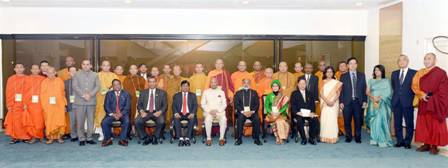
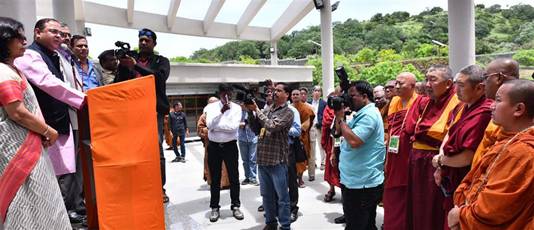
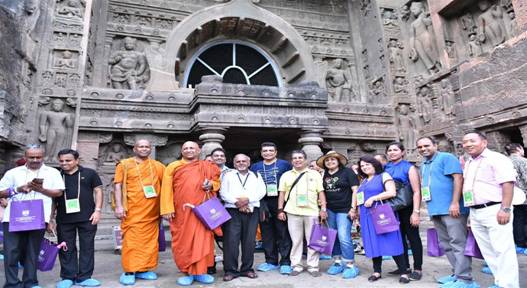
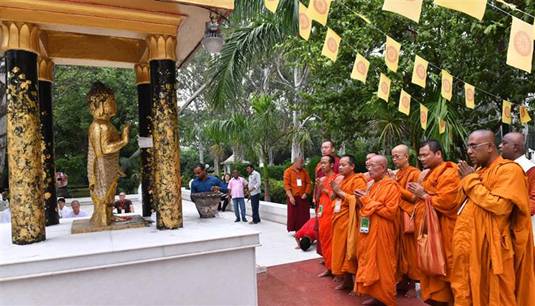
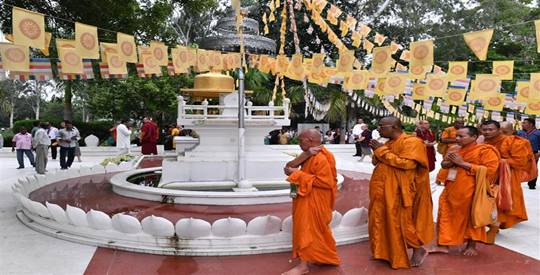
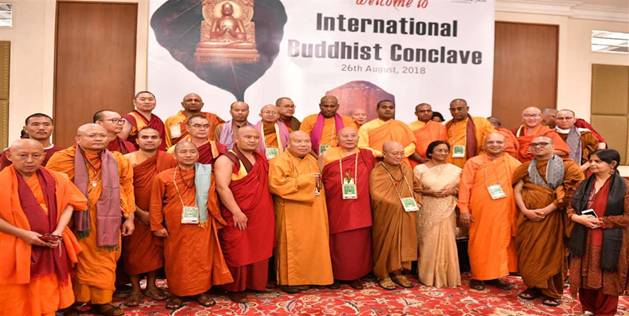
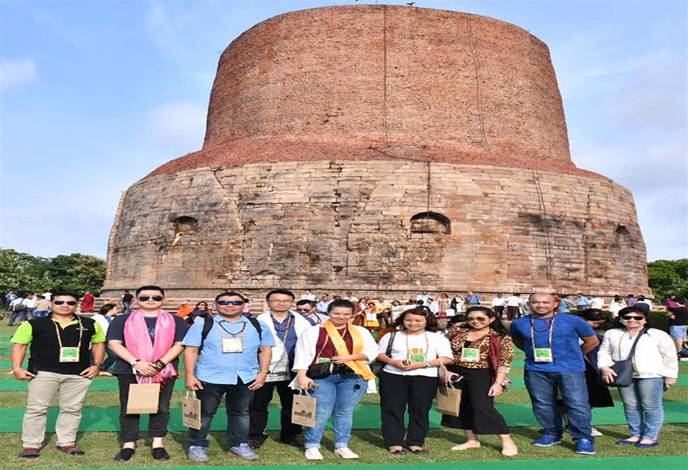
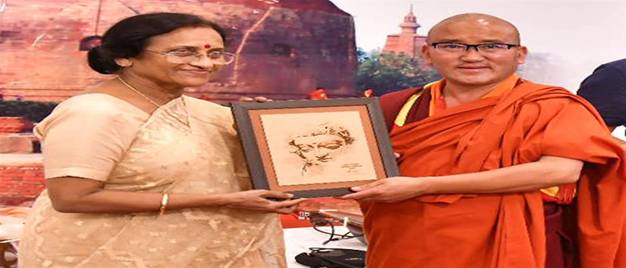
*****
Sanjay Kumar/jk/Tourism/26.08.2018
(Release ID :183095)